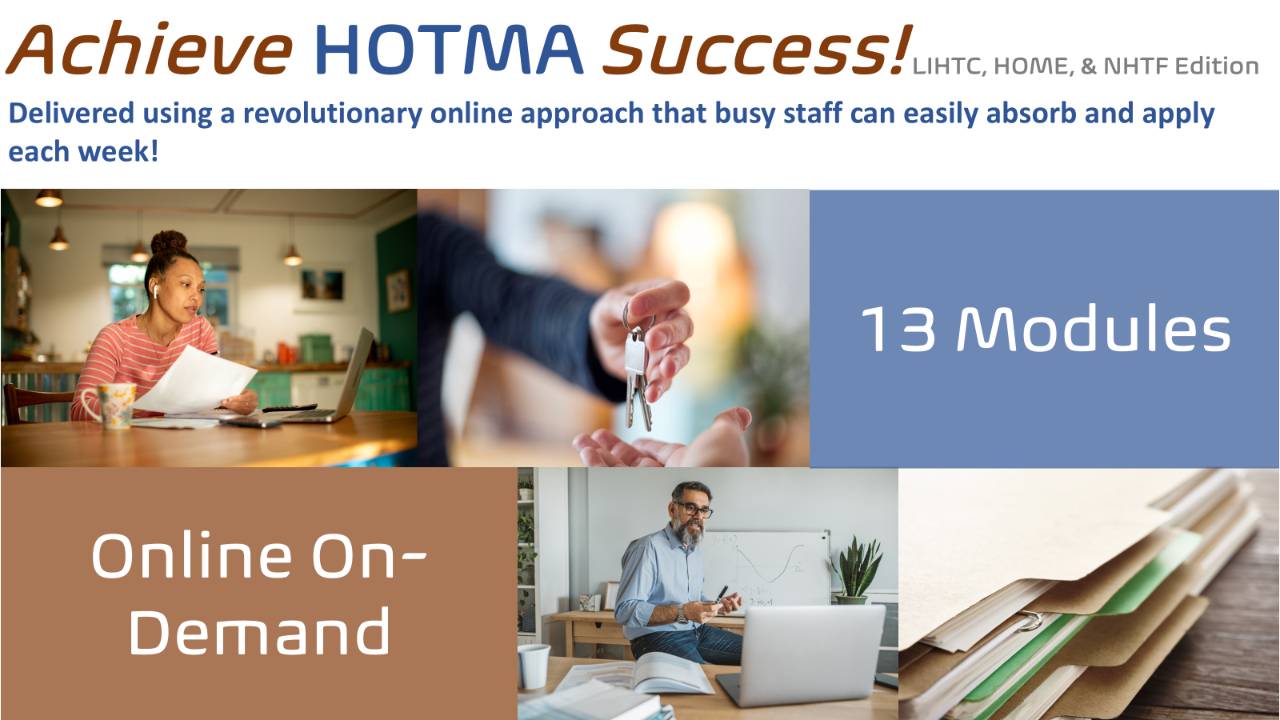Article | Reduce, Reuse, Resyndicate | Part 5
Dec 07, 2022
Series Outline
Part 5: The Available Unit Rule
Question 11 | How does the Available Unit Rule apply to existing households at a resyndication acquisition/rehab?
Answer | When credits actually start for the new credits, an income test will be done on all residents. In many cases this is the start of the year following acquisition. This is generally a self-certification with additional supporting documentation provided by the household if necessary (see 8823 Guide guidance on income testing when credits start). If a household is over-income (over 140% of the current income limits) at the start of credits, the Available Unit Rule is invoked. The next available units of the same or lesser size will need to be rented to eligible households until the over-income unit is replaced and the applicable fraction for the building is restored.
Reference: 8823 Guide 4-25 & 26
Question 12 | Are there any differences at a resyndicated property when an existing owner does not qualify for acquisition credits but is going to claim rehab credits?
Answer | The example from the 8823 Guide (quoted in FAQ 4 in article 2) is one of two examples. The primary difference between the two scenarios is that one is for a project that is only claiming rehabilitation credits (and does not qualify to claim acquisition credits) and one is for an acquisition/rehab project. The IRS summarizes the similarities and differences as follows:
"1. In either case, originally income-qualified households are protected by the extended use agreement and qualify as low-income households for purposes of the second allocation.
2. The Available Unit Rule (AUR) is applied differently.
- For a second credit allocation to the same owner, the AUR is applied based on the household’s last annual income recertification.
- For a new owner, income is tested at the beginning of the credit period and the AUR applied accordingly. However, the household is not required to complete a new income (re)certification within 120 days of the acquisition; the existing certification is fine.
3. Vacant units are also treated differently.
- For a second credit allocation to the same owner, vacant low-income units continue to qualify as low income units if the units are suitable for occupancy.
- For a second allocation to a new owner, units previously occupied by income-qualified households, but are vacant at the beginning of the 10-year credit period are not low-income units."
Note on 2, second bullet, above: Since 2008, properties that are 100% tax credit are not legally subject to recertification. Since then, new move-ins to those properties may not have ever been recertified. In these cases, the AUR works a bit differently, but the next unit is always intended to be rented to eligible households (see 8823 Guide Chapter 14 for further details on the AUR for both 100% tax credit and mixed-income properties).

There is a very good chance that the topic of this post is covered in an online on-demand course at Costello University.
Stay connected with news and updates!
Join our mailing list to receive the latest news and updates from our team.
Don't worry, your information will not be shared.
We hate SPAM. We will never sell your information, for any reason.






